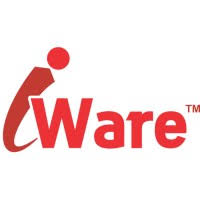
₹ 114000
₹95- ₹95
1200
₹85
-10

30 Apr 2025
5 May 2025
6 May 2025
Application Details
Iware Supplychain Services IPO is a fixed price of Rs 27.13 crores. The issue is entirely a fresh issue of 28.56 lakh shares.
Iware Supplychain Services IPO opens for subscription on April 28, 2025 and closes on April 30, 2025. The allotment for the Iware Supplychain Services IPO is expected to be finalized on Friday, May 2, 2025. Iware Supplychain Services IPO will be list on NSE SME with a tentative listing date fixed as Tuesday, May 6, 2025.
Iware Supplychain Services IPO price is ₹95 per share. The minimum lot size for an application is 1200. The minimum amount of investment required by retail investors is ₹1,14,000. The minimum lot size investment for HNI is 2 lots (2,400 shares) amounting to ₹2,28,000.
About Iware Supplychain Services Limited (SME IPO)
Incorporated in 2018, iWare Supply Chain Services Limited is pan-India integrated logistics company providing a wide range of services including warehousing (with third-party logistics (3PL) and carrying & forwarding agent operations), transportation, rake handling services, business auxiliary services, and rental income operating across multiple states in India like Gujarat, West Bengal, Uttar Pradesh, Rajasthan, Punjab, Haryana, and Delhi essentially offering comprehensive supply chain management solutions through their extensive network across the country.
The company offers services in multiple states, including Gujarat, West Bengal, Uttar Pradesh, Rajasthan, Punjab, Haryana, and Delhi, ensuring comprehensive coverage and reliable service delivery. The company offers logistics support and solutions through its extensive network and integrated services across India.
FAQ
IPO stands for "Initial Public Offering." It's the process through which a privately-held company becomes publicly traded by offering its shares to the general public and listing them on a stock exchange for trading. This allows the company to raise capital from investors and grants individuals and institutions the opportunity to invest in and own a portion of the company.
The life cycle of an IPO, or Initial Public Offering, begins with a company's decision to go public. It involves hiring underwriters, registering with regulatory authorities, determining the IPO price, marketing to investors, and the subscription period where investors place orders for shares. After allocation and listing, shares become publicly tradable, and the company enters the secondary market. Ongoing reporting and corporate governance are crucial as the company continues to operate as a publicly-traded entity. The IPO aims to raise capital for growth and provides investors with opportunities to trade shares in the company.
An IPO (Initial Public Offering) is when a private company goes public by selling shares to the public. Investors buy these shares, giving them ownership in the company. It's a way for companies to raise capital and expand. The process involves underwriters, regulatory filings, setting the IPO price, and marketing to investors. After the IPO, shares can be traded on a stock exchange. IPOs offer opportunities and risks, so investors should research and consider carefully.
"Upcoming IPOs" refers to initial public offerings that have been announced by private companies but have not yet occurred. These are companies that plan to go public in the near future by issuing shares to the public and listing them on a stock exchange. Investors often keep an eye on upcoming IPOs as they represent opportunities to invest in companies at their early stages of public trading, potentially capturing growth potential. These offerings are typically accompanied by significant media and investor attention as they approach their launch dates.
 Download
Download